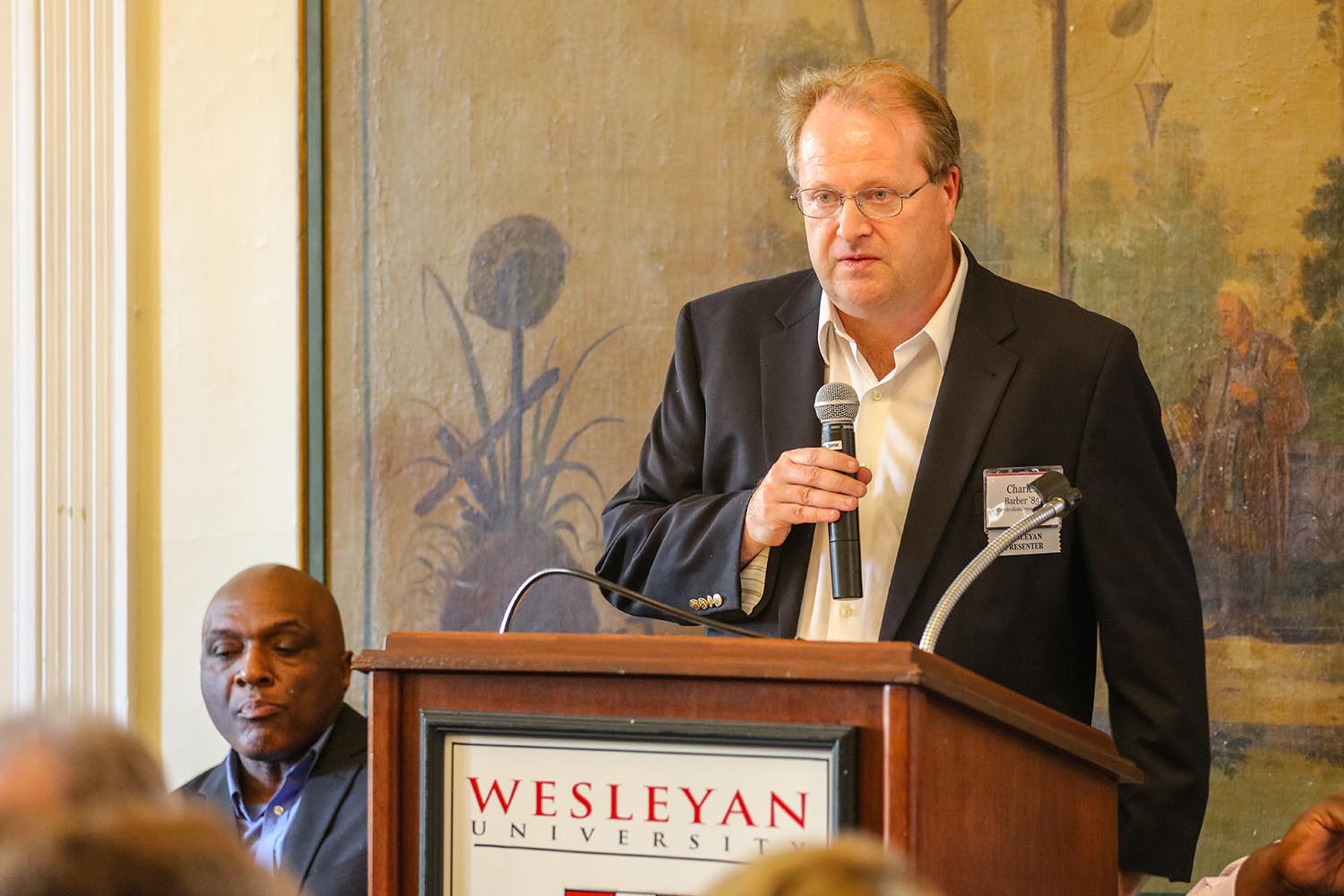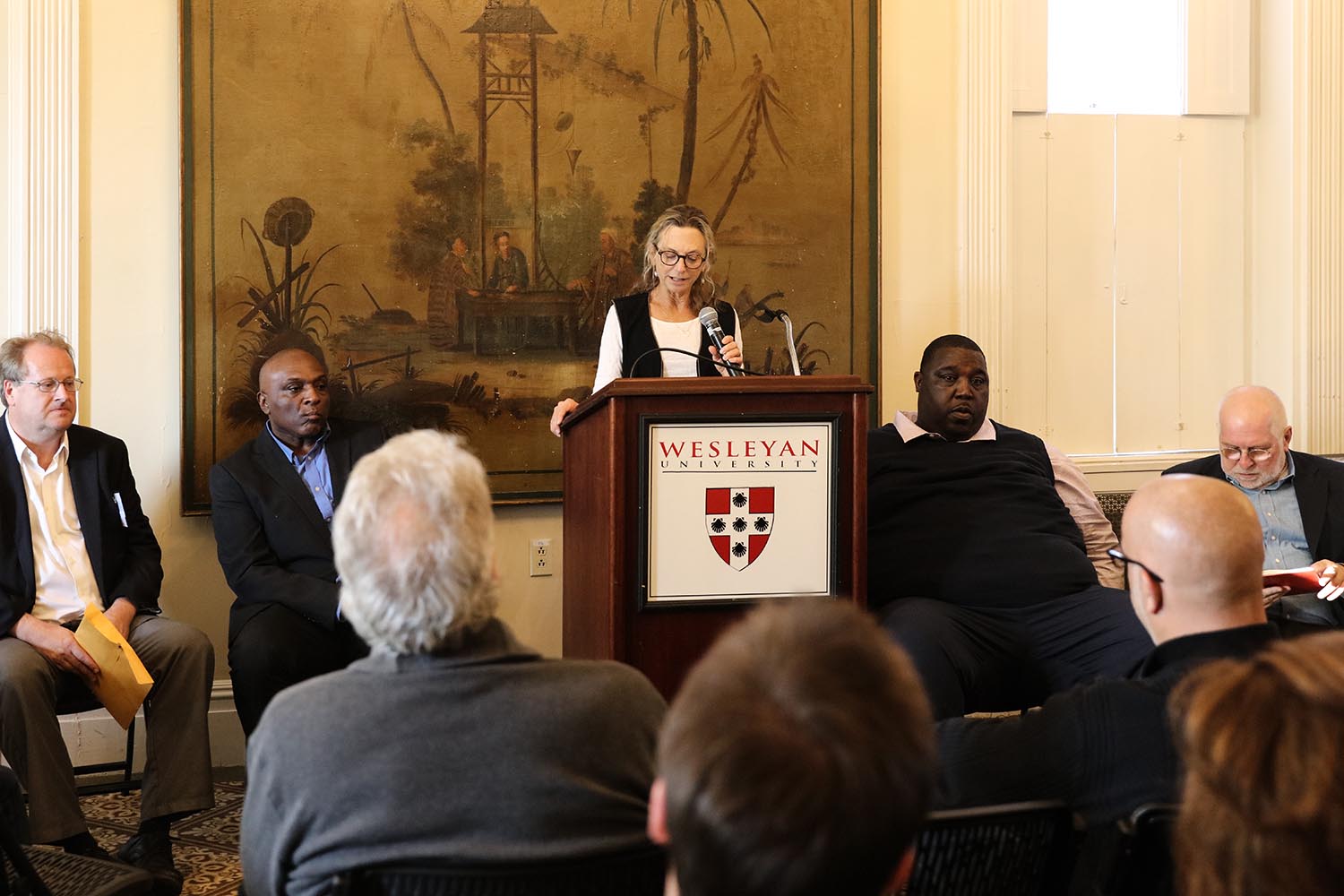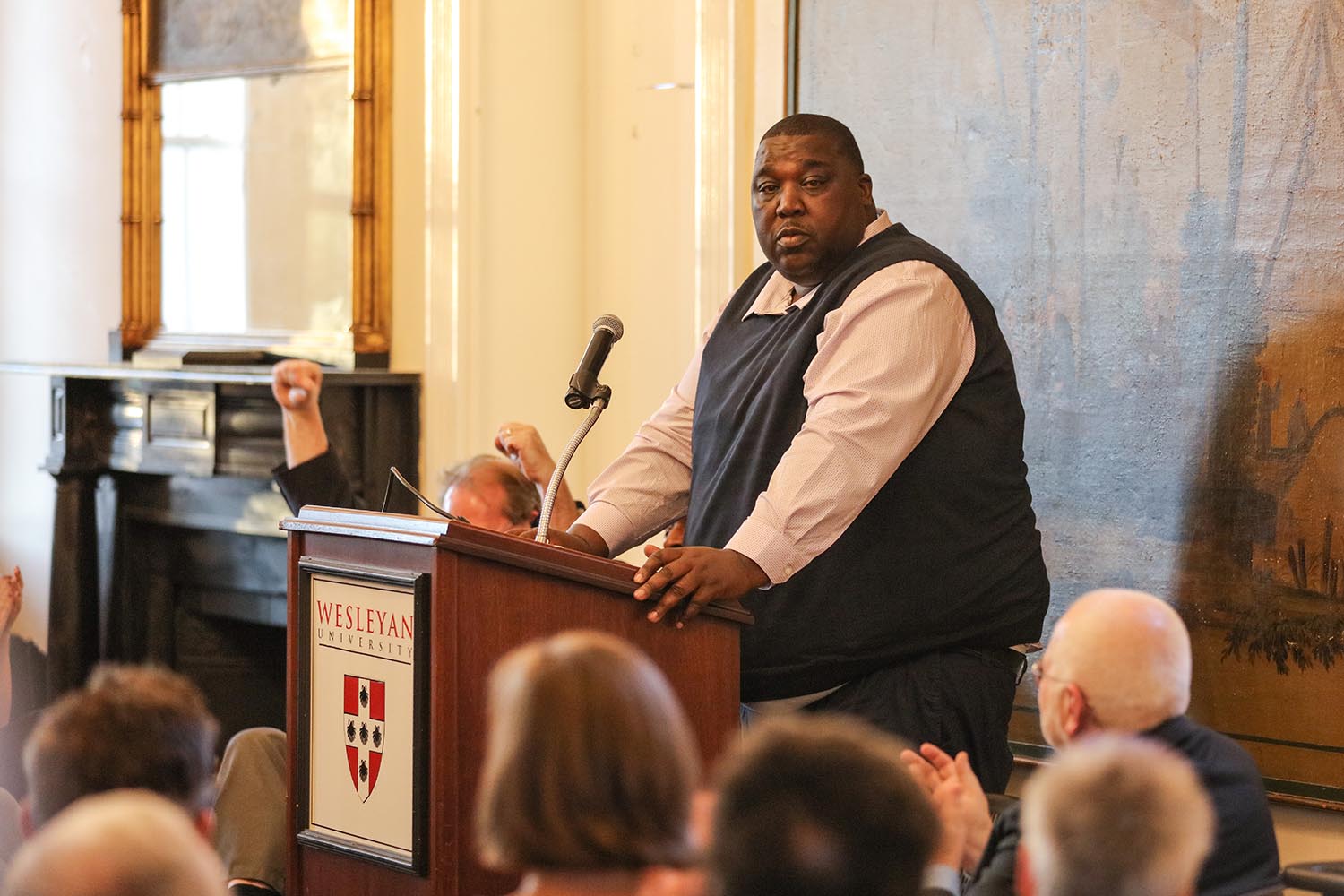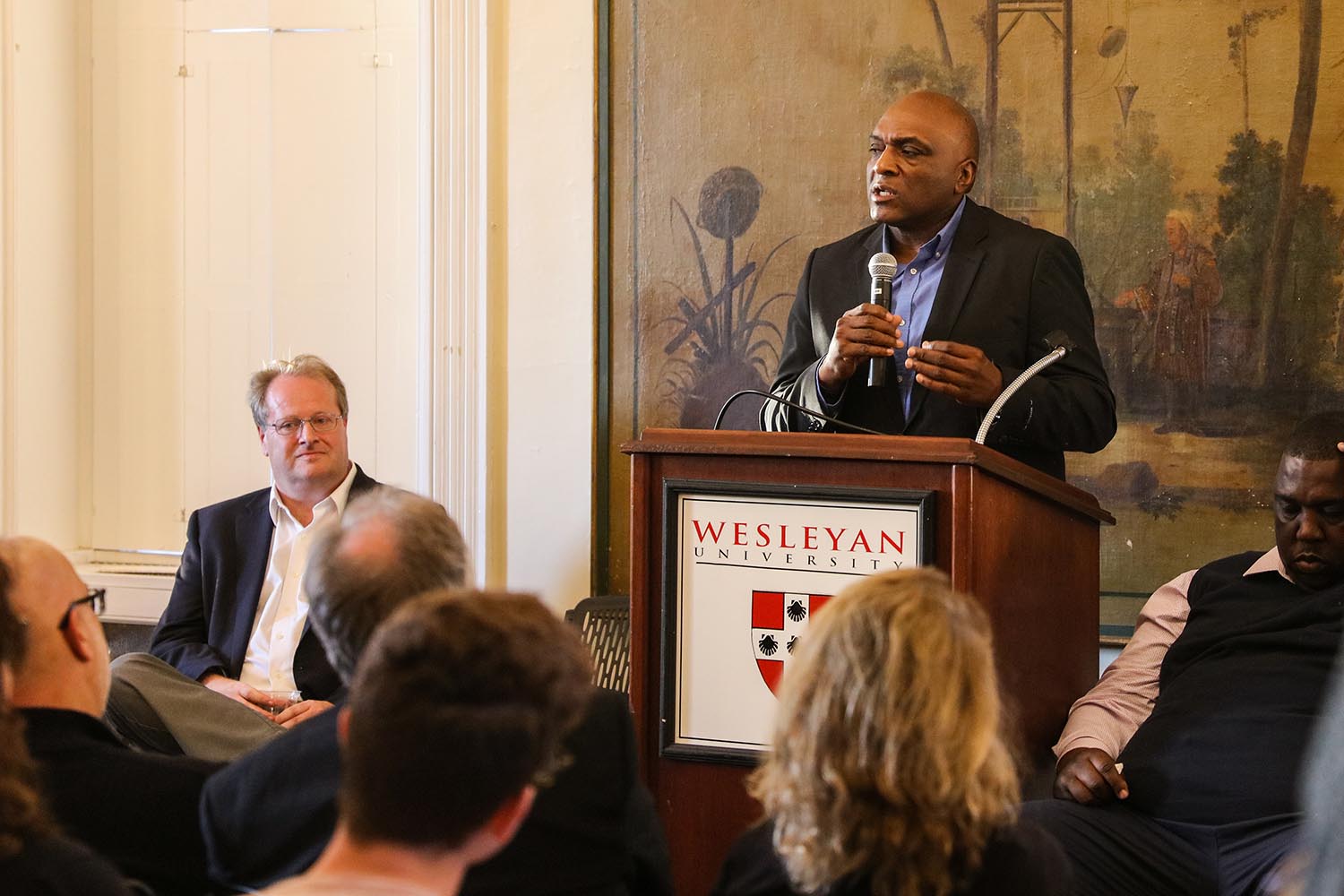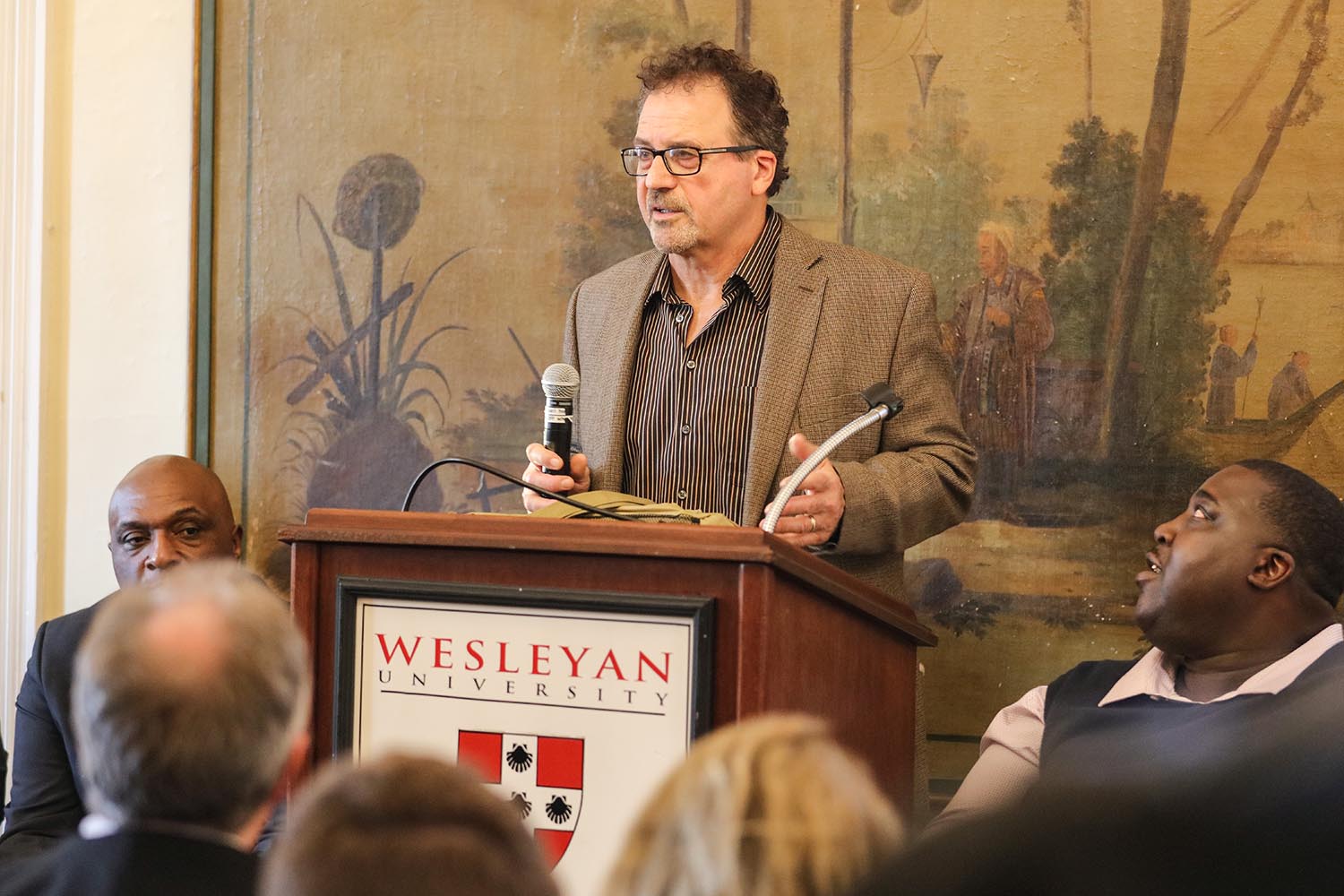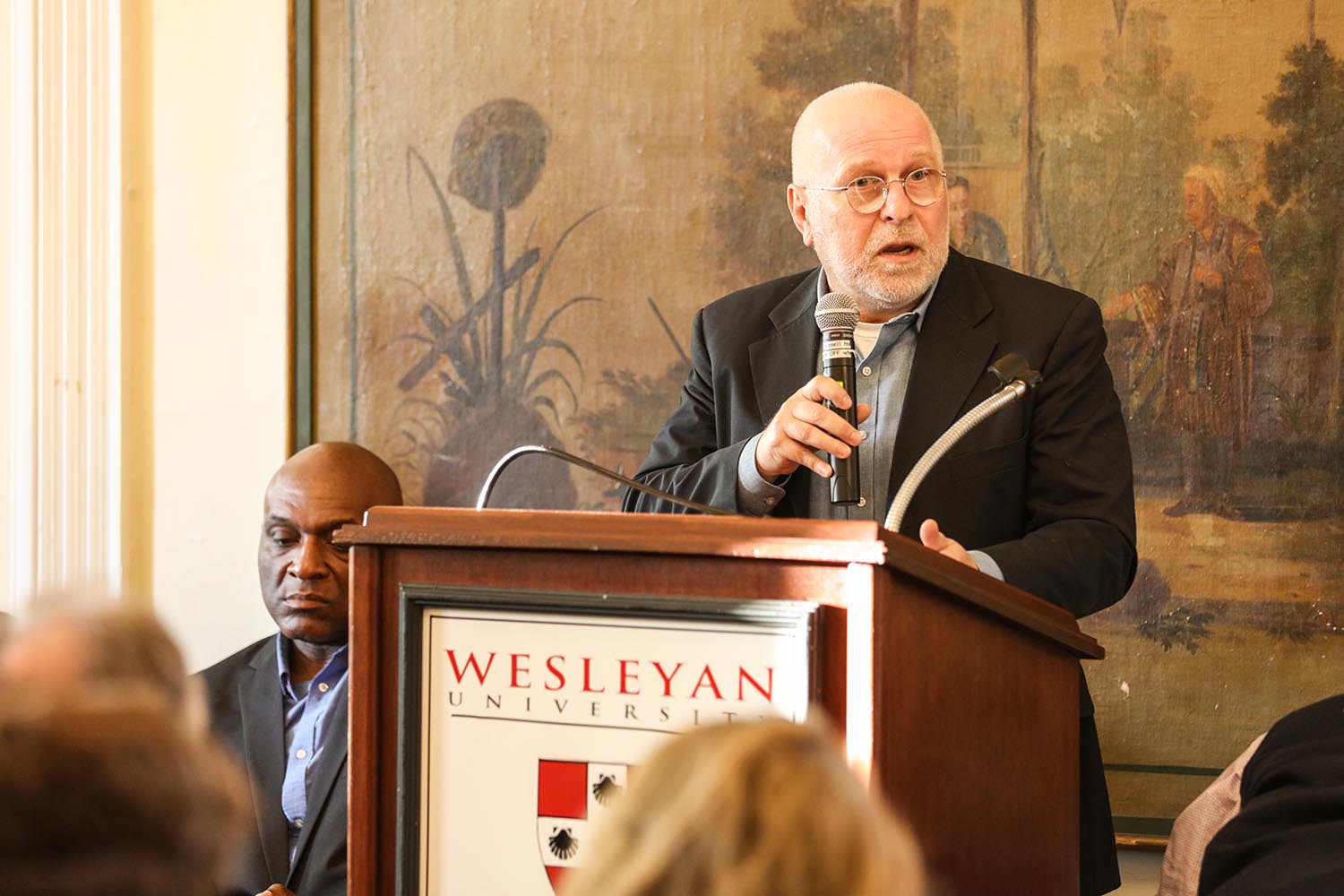Barber Authors New Book on ‘One Man’s Journey from Gangleader to Peacekeeper’
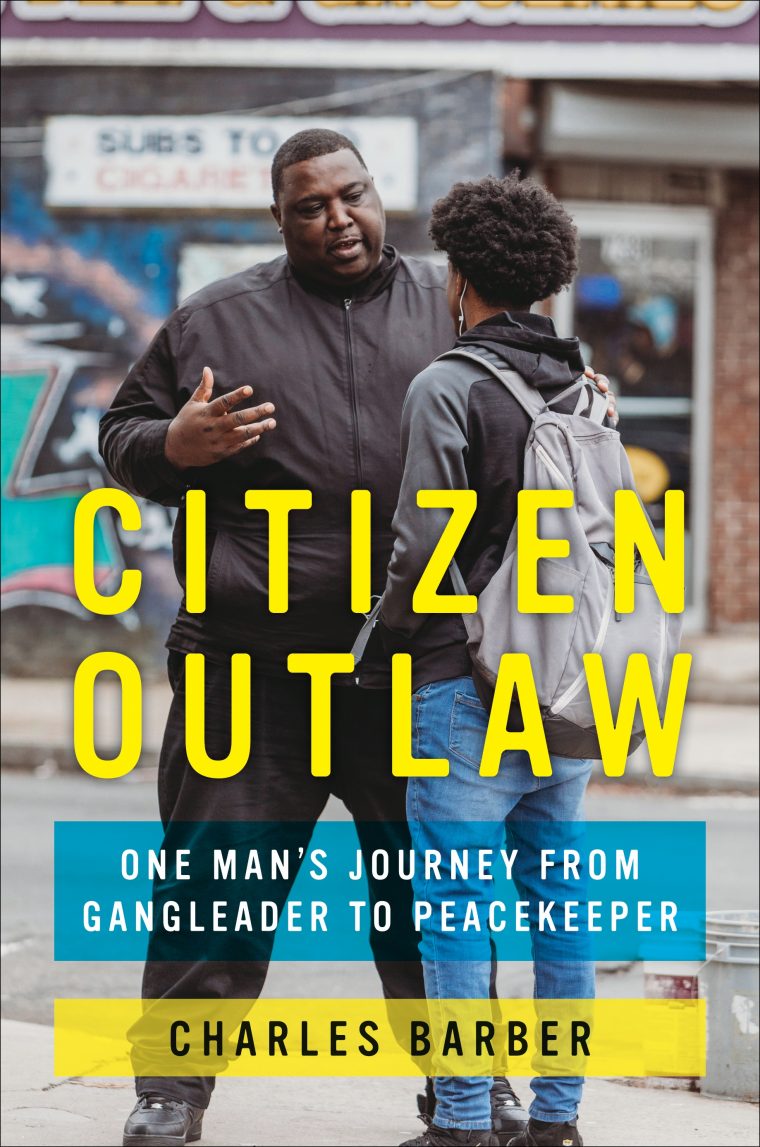
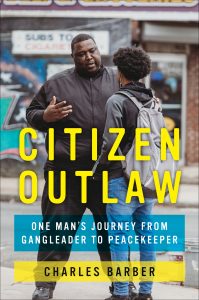
Charles Barber, writer-in-residence in letters, is the author of a new book that tells the dramatic story of William Juneboy Outlaw III. Formerly the head of a major cocaine gang in New Haven, Outlaw turned his life around and now is an award-winning community advocate, leading a team of former felons who negotiate truces between gangs on the very streets that he once terrorized.
Barber wrote Citizen Outlaw: One Man’s Journey from Gangleader to Peacekeeper, published Oct. 15 by HarperCollins, in collaboration with Outlaw. The two gave a WESeminar and book signing on Nov. 1 at Russell House as part of Homecoming/Family Weekend. Their collaboration was also featured on the Today Show on Nov. 13.
Three Wesleyan students and alumni also worked over the summer and contributed to the book including Ben Owen ’21, Nicole Updegrove ’14, and Natalia Siegel ’18.
More information about the book from the website follows:
When he was in his early 20s, William Juneboy Outlaw III was sentenced to 85 years in prison for homicide and armed assault. The sentence brought his brief but prolific criminal career as the head of a forty-member cocaine gang in New Haven, Connecticut, to a close. But behind bars, Outlaw quickly became a feared prison “shot caller” with 150 men under his sway.
Then everything changed: his original sentence was reduced by 60 years. At the same time, he was shipped to a series of the most notorious federal prisons in the country, where he endured long stints in solitary confinement—and where transformational relationships with a fellow inmate and a prison therapist made him realize that he wanted more for himself.
Upon his release, Outlaw took a job at Dunkin’ Donuts, volunteered in the New Haven community, and started to rebuild his life. He now is an award-winning community advocate, leading a team of former felons who negotiate truces between gangs on the very streets that he once terrorized. The homicide rate in New Haven has dropped 70 percent in the decade that he’s run the team—a drop as dramatic as in any city in the country.
Written with exclusive access to Outlaw himself, Charles Barber’s Citizen Outlaw is the unforgettable story of how a gang leader became the catalyst for one of the greatest civic crime reductions in America, and an inspiring argument for love and compassion in the face of insurmountable odds.
See photos and video of Barber and Outlaw, learn about upcoming events, and get involved in the Connecticut Violence Interruption Project.
Photos from the WESeminar Nov. 1 follow: (Photos by Simon Duan ’23)
